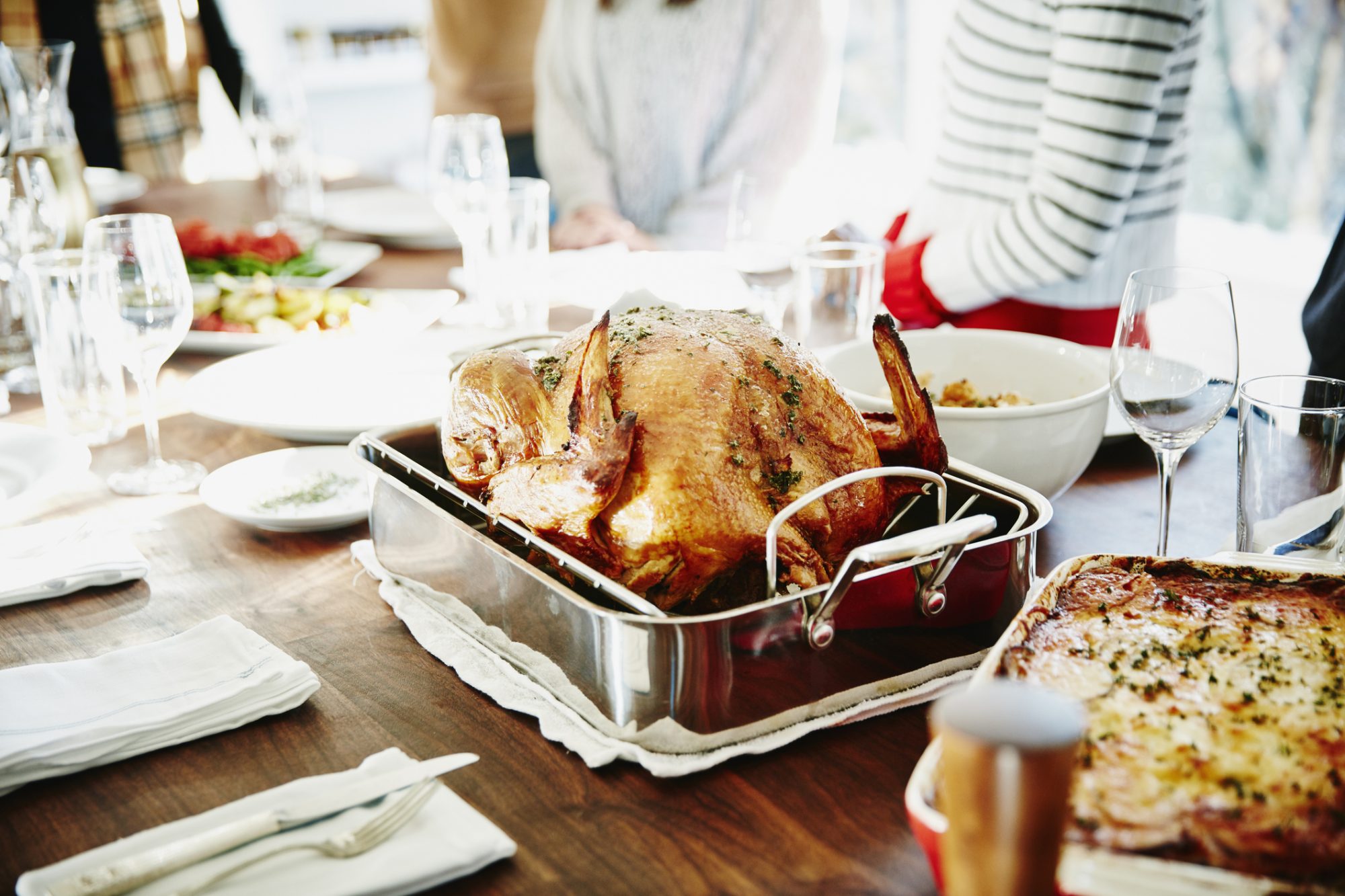
This holiday season may be the first time relatives come together after a long time—and while the adults may not appear much different, our kids have grown up and out over the course of the pandemic. For tweens and teens, that means they've maybe grown several inches, sprouted hair everywhere, and pimples have erupted over once smooth skin.
They may be feeling uncomfortable about all these changes. Or perhaps, nothing has happened to their bodies, and they are feeling self-conscious about what has not changed.
This is how our pubescent children will arrive at the holiday table this year. They may look completely different from the last time family and friends saw them in person and that brings up a whole host of potential challenges. So how do we prepare ahead of time? What do we say? What don't we say? What principles can guide us through this tricky terrain?
As a mom of four (ages 11, 13, 16, and 18), the founder of Dynamo Girl, a company designed to use sports and puberty education to empower kids, and co-host of The Puberty Podcast, here's my advice on how to navigate holidays when you have tweens or teens around.
How to Prepare Your Tween or Teen for a Holiday Dinner
First things first, parents can play a vital role in helping tweens and teens have an enjoyable holiday—even if there will be holiday guests whose comments tend to skew on the insensitive side. Here's how they can prepare:
Help them feel their best: If they'll need to wear something more dressy than usual for a holiday dinner, have your kid try on their clothes ahead of time so that you have time to help find them something they feel comfortable in. Kids in puberty say there is nothing worse than being forced to wear something that doesn't fit well.
Avoid food issues: If you have a child with eating challenges, make sure there will be food they like at the meal, otherwise bring some with you.
And if you have friends or family who like to police other people's eating, you can tell your kid before you go: "So-and-so has a different attitude about food than our family does. You eat what you want and if you run into any issues, let me know."
Reach out to relatives beforehand: If you have family members who tend to make comments about other people's appearances, you can reach out to them ahead of time and politely ask them not to comment on your kid's skin/height/weight/breasts/voice changes etc.
If you know there will be people who really want to connect with the kids in the room, but often say awkward things, you can also be in touch before the holiday and offer some suggestions of topics your kid does like to talk about.
How to Talk to Tweens and Teens During a Holiday Dinner
For parents who need a little help with navigating healthy conversations with their kids (that's totally OK!) or any adults with tweens and teens in their lives, there are simple ways to go about that.
Steer clear of certain topics: Don't police eating, comment on appearance, point out changing bodies, or assume all tweens/teens have romantic inclinations.
Move toward open-ended questions: Ask about things they might be interested in without trying too hard to be cool. Kids sniff out inauthenticity a mile away.
Don't assume: Avoid presuming you know anything about their experience during COVID because what they went through (and are possibly still going through) was totally unprecedented: socially, emotionally, and academically.
Try to find some common ground: That could spark a conversation without starting from the assumption that video games/social media/fantasy sports are terrible.
Let the kid be the expert: Ask curious questions about their interests rather than lecturing them on fear-mongering issues you read about in the newspaper.
What not to tell a tween or teen during a holiday dinner
- You look so grown up.
- Don't worry, your skin will clear up.
- When did you start wearing a bra?!
- Any boyfriends? Any girlfriends?
- We won't ask you to say grace—your voice will probably crack!
- I was chubby too when I was your age.
- Let's fatten you up, beanpole!
- Oh honey, don't eat that. Have more salad.
- I have a great personal trainer you can work with.
- Is that a mustache I see?!
What you can tell a tween or teen during a holiday dinner
- Are you watching any funny shows on Netflix?
- Did you dress up for Halloween?
- How is your fantasy football team doing?
- Those sneakers are very cool—where'd you get them?
- Any classes you're enjoying at school?
- Did you pick up any new hobbies during COVID?
- Do you have a favorite video game?
- What type of stuff do you like to watch on TikTok?
- What music have you been listening to?
- Is it fun or annoying to have a new puppy?
The Bottom Line
Tweens and teens have had a rough couple of years and may be getting together with relatives and friends for the first time this holiday season. Insensitive comments focused on their appearance, eating habits, or personal lives can really spoil the occasion. It's important for adults to know how to have healthy conversations with the tweens and teens in their lives to help build their confidence and allow them to feel supported.
Vanessa Kroll Bennett is raising four tweens and teens. She is the co-host of The Puberty Podcast, which is exactly what it sounds like; the founder of Dynamo Girl, a company designed to use sports and puberty education to empower kids; and the author of the Uncertain Parenting Newsletter.





